Disability-Specific Programs
-
Developmental Cognitive Disability (DCD) program
A developmental cognitive disability program is designed for students who have significant delays intellectually and who have deficits in adaptive behavior or functional skills.
This program features- Teachers that are trained in researched-based curriculum and strategies that help students that need academic content linked to real life activities.
- Curriculum (alternate achievement standards) and alternate assessments that incorporate functional skills and related services to assist in student development.
DCD Resource Room Programs:
Students are with their peers in General Education classes for more than half the day and receive additional support from a teacher specifically trained to work on adapting/modifying their academics, work on independence and functional skills, and address other educational needs.
DCD Specialized Programs:
Students spend 60% of the school day in a separate Special Education classroom with a teacher specifically trained to work with students who have significant academic, functional, communication, motor, and health needs.Emotional Behavioral Disorder (EBD) program
Emotional behavioral disorder program is designed to help students who are withdrawn, have anxiety, have aggression or disordered thought patterns.
This program features:- Trained staff that work with students on building consistent routine by using positive behavior reinforcements and support as well as individualized behavior plans.
- Nurture Heart, an adopted framework, is used to work with the students when they have emotional reactions.
EBD Resource Room Programs:
Designed for students that need additional support in their General Education classroom. Students receive indirect consultation from a specially licensed Special Education teacher, paraprofessional or in a co-taught instructional model.
EBD Specialized Programs:
Students are taught in structured environment to help reduce high levels of withdrawal, anxiety, and/or aggression. Students spend 60% of their school day in a separate Special Education classroom with a teacher trained to work with students that have significant emotional and/or behavioral responses and academic needs. Students continuously work toward accessing General Education.Autism Spectrum Disorder (ASD) program
The Autism program is designed for students who need support social interaction, communication and the presence of restricted, repetitive, and stereotyped patterns of behaviors, interests and activities.ASD Resource Room Programs:
Students are in General Education classroom with their peers and receive additional support from teachers trained to use ASD researched-based strategies to adapt/modify academics, increase independence, learn social/communication skills, and address other educational needs.ASD Specialized Programs:
Students spend 60% of the school day in a separate Special Education classroom with a teacher trained to use ASD researched-based strategies to teach students who have significant academic, functional, social, communication, motor, and/or health needs.Deaf or Hard of Hearing (DHH) Services
Specialized services are based on student need, from full inclusion in general education classrooms to site-based specialized programs. Please click here to learn more about DHH services in SPPS.
Itinerant DHH Services:
Itinerant teachers provide services to students in schools and homes throughout the district. The itinerant teachers support students' full inclusion in their neighborhood school with small group and individual instruction.Infants, toddlers, and preschool age children who are Deaf or have a hearing loss access services in natural settings including home, child care or preschool. (Click here to learn more about Early Childhood Special Education.)
Site-based Specialized DHH Programs
Site-based programs in preschool, elementary, secondary, and transition are designed for students who are Deaf or have a hearing loss. Specialized services include teachers, related service providers and support staff who use sign language, sign language interpreting, captioning and visual supports.




